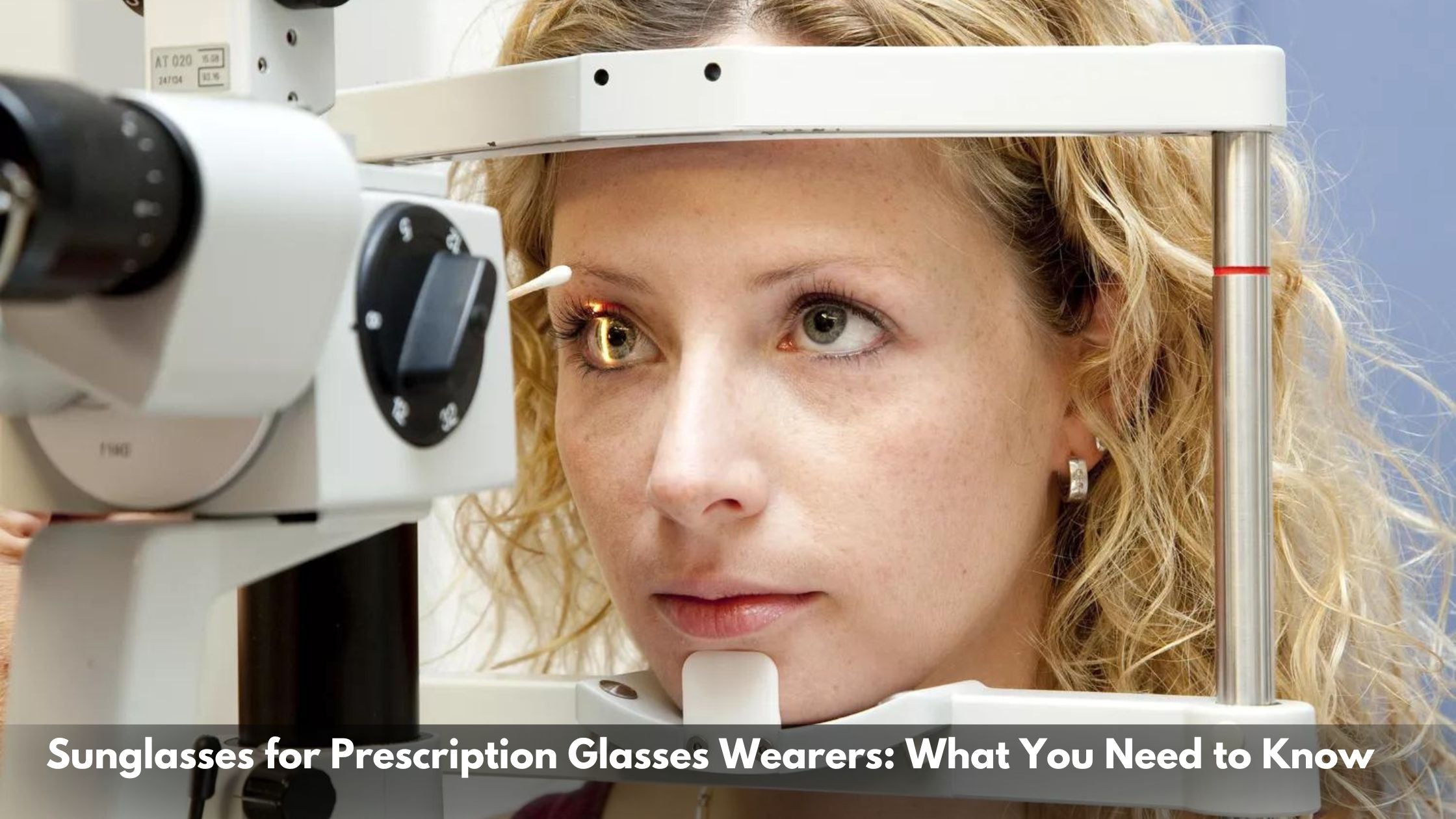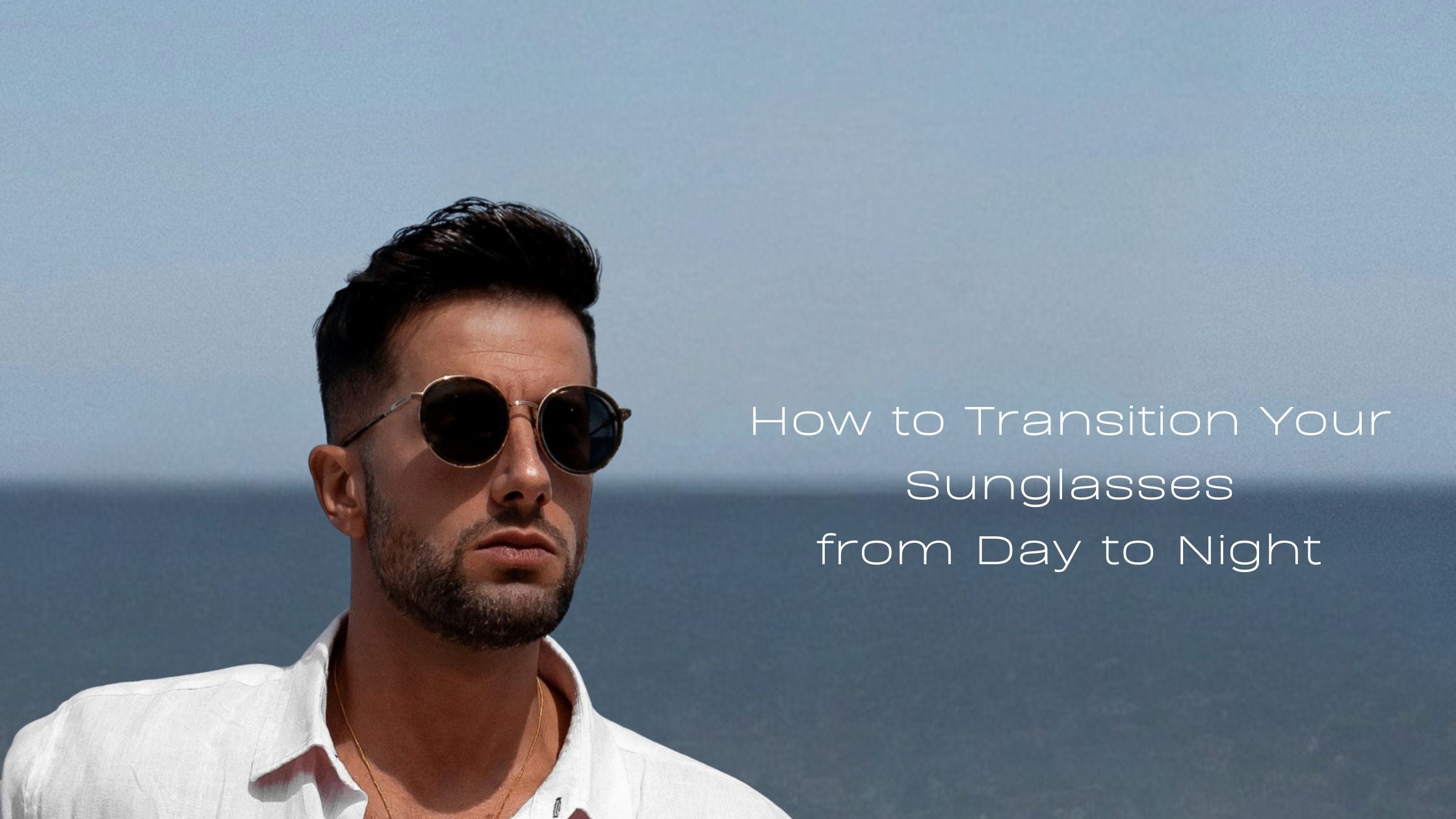
Sunglasses for Prescription Glasses Wearers: What You Need to Know
When it comes to protecting your eyes from the sun, wearing sunglasses is a must. However, for those who require prescription glasses, finding the right pair of sunglasses can be a bit more challenging. This comprehensive guide will walk you through everything you need to know about sunglasses for prescription glasses wearers, helping you make an informed decision and ensuring your eyes stay protected and stylish.
Understanding Prescription Sunglasses
Prescription sunglasses combine vision correction with sun protection, offering a convenient solution for those who need both. These sunglasses have custom-made lenses that match your prescription, providing the same vision correction as your regular glasses but with the added benefit of UV protection and glare reduction.
Benefits of Prescription Sunglasses
- Convenience: No need to switch between glasses and sunglasses. Prescription sunglasses offer a seamless transition from indoors to outdoors.
- UV Protection: Just like regular sunglasses, prescription sunglasses protect your eyes from harmful UV rays, reducing the risk of eye conditions like cataracts and macular degeneration.
- Glare Reduction: Polarized lenses in prescription sunglasses can significantly reduce glare from surfaces like water, snow, and roads, enhancing visual comfort.
- Style: Prescription sunglasses come in various styles and designs, allowing you to choose a pair that matches your personal taste and lifestyle.
Types of Prescription Sunglasses
There are several types of prescription sunglasses to consider, each with its unique features:
- Single Vision Lenses: These lenses correct one field of vision, either near or distance. Ideal for those who need glasses for specific activities like reading or driving.
- Bifocal Lenses: These lenses have two distinct areas for near and distance vision. They are suitable for individuals who need correction for both reading and distance vision.
- Progressive Lenses: These lenses offer a smooth transition between multiple vision fields (near, intermediate, and distance) without the visible lines found in bifocals. They provide a more natural visual experience.
- Polarized Lenses: Polarized lenses reduce glare, making them ideal for activities like driving, fishing, and other outdoor sports.
- Photochromic Lenses: Also known as transition lenses, these lenses darken in response to sunlight and lighten indoors, providing versatility and convenience.
Choosing the Right Frames
When selecting prescription sunglasses, the frame style is just as important as the lenses. Here are some tips to help you choose the perfect frames:
- Face Shape: Choose a frame that complements your face shape. For example, round faces look great with rectangular frames, while square faces are complemented by round or oval frames.
- Material: Frames come in various materials, including plastic, metal, and acetate. Each material offers different benefits, such as durability, flexibility, and weight.
- Fit: Ensure the frames fit comfortably on your face. They should not pinch your nose or temples and should stay securely in place during activities.
- Style: Consider your personal style and choose frames that reflect your personality. Whether you prefer classic, sporty, or trendy designs, there's a perfect pair of prescription sunglasses for you.
Lens Options and Coatings
Prescription sunglasses offer various lens options and coatings to enhance your visual experience:
- UV Protection: Ensure your lenses provide 100% UV protection to shield your eyes from harmful rays.
- Anti-Reflective Coating: This coating reduces glare from reflective surfaces and improves visual clarity.
- Scratch-Resistant Coating: Protects your lenses from scratches, extending their lifespan.
- Mirror Coating: Reduces glare and adds a stylish reflective finish to your lenses.
- Blue Light Filter: Helps reduce eye strain from digital screens, making it a great option for those who use electronic devices frequently.
Prescription Sunglasses vs. Clip-On Lenses
While prescription sunglasses are a great option, some people prefer clip-on lenses. Clip-ons are lenses that attach to your regular glasses, providing sun protection without needing a separate pair of prescription sunglasses. Here are the pros and cons of each option:
Prescription Sunglasses:
- Pros: Seamless vision correction and sun protection, wide variety of styles, no need for additional accessories.
- Cons: More expensive than clip-ons, requires a separate pair of glasses.
Clip-On Lenses:
- Pros: More affordable, convenient for those who already have a favorite pair of regular glasses.
- Cons: May not fit all frame styles, can be less stable and prone to falling off, limited style options.
Transition Lenses: A Convenient Alternative
Transition lenses, also known as photochromic lenses, are a popular choice for prescription glasses wearers. These lenses automatically darken in response to sunlight and return to clear indoors. They offer a convenient solution for those who frequently move between different lighting environments. However, it's important to note that transition lenses may not darken as much as regular sunglasses in very bright conditions, and their activation can be affected by temperature.
Sports and Outdoor Activities
If you enjoy sports and outdoor activities, consider prescription sunglasses designed specifically for these purposes. Look for features such as:
- Wraparound Frames: Provide a wider field of vision and better protection from wind and debris.
- Impact-Resistant Lenses: Durable lenses that can withstand the demands of physical activities.
- Anti-Fog Coating: Prevents lenses from fogging up during intense activities.
Conclusion
Prescription sunglasses offer a perfect blend of vision correction and sun protection, making them an essential accessory for anyone who wears glasses. By understanding the different types of prescription sunglasses, lens options, and frame styles, you can find the ideal pair that suits your needs and lifestyle. Whether you're driving, playing sports, or simply enjoying the outdoors, prescription sunglasses provide the comfort, protection, and style you deserve.
Investing in a quality pair of prescription sunglasses is an investment in your eye health and overall well-being. So, take the time to explore your options, consult with your optician, and choose the perfect pair of prescription sunglasses that will keep your eyes safe and stylish for years to come.
SHOP BY SHAPE
WORN BY OVER 200.000 PEOPLE WORLDWIDE








Leave a comment
This site is protected by hCaptcha and the hCaptcha Privacy Policy and Terms of Service apply.